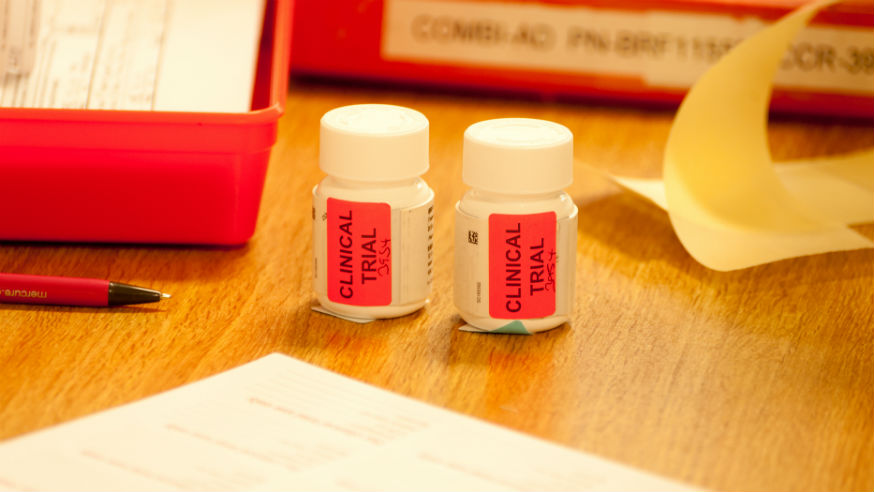
Around half of cancer patients referred for phase I clinical trials thought their tumours would shrink, even after their clinician explained that the trial might not have the desired outcome, a new study reveals.
Phase I trials represent the very earliest stage in the clinical development of new drugs, and are normally only offered to patients for whom other treatment options no longer work.
A team at The Institute of Cancer Research, London, and The Royal Marsden NHS Foundation Trust found that patients’ optimism exceeded what these very early-stage phase I trials could deliver — although there were signs that clinicians were getting better at managing expectations.
The proportion of patients expecting their tumour to shrink was much higher than the 4-20% response rates currently achieved on phase I trials — even at world-leading trials centres such as the one featured in the study, which are improving response rates through use of new targeted therapies.
It was, however, much lower than the 75% of US patients who told a similar study back in 2003 that they thought their tumours would shrink.
The researchers said doctors and nurses worked hard to ensure patients understood the limits of what could be achieved through early-stage phase I trials of new cancer drugs. But they said their study suggested there was work to do to further enhance understanding.
Examining patient motivations
The study was published on Monday 26 September 2016 in the journal Cancer, and is the first study to look at patient motivations before their initial trial consultation, as well as after they had seen a doctor.
Researchers surveyed 402 patients who were considering entering phase I clinical trials at the ICR’s and The Royal Marsden’s Drug Development Unit — one of the world’s top centres for early-phase trials in cancer. The unit is funded by Cancer Research UK, the National Institute for Health Research Biomedical Research Centre at The Royal Marsden and the ICR, and the Experimental Cancer Medicine Centre Network.
Patients were asked to complete a questionnaire before and after the initial consultation with the trial doctor, in order to judge whether or not their opinions changed.
Of the 301 patients who responded, 80% were willing to participate in phase I studies after a consultation with the trial doctor to explain the process.
Patients’ expectations did not alter after their consultation with trial doctors. Some 47% of patients believed the treatment they received would shrink their tumours and 14% — an eighth of respondents — expected a cure.
Phase I clinical trials need to ensure safety of new cancer drugs and typically begin by giving patients small doses and gradually increasing to levels that may be more likely to provide treatment benefit. They are only opened up to patients with advanced cancer, who have a relatively short life expectancy.
Realistic expectations
The findings suggest clinical staff should look for new ways to enhance patients’ understanding of what they can realistically expect from participating in a trial.
Older patients, aged over 60 years, were particularly likely to be motivated by helping the next generation and were more likely than younger groups to enter the trial because their doctor recommended they do so.
Study leader, Dr Udai Banerji, Deputy Director of the Drug Development Unit at the ICR and The Royal Marsden, said: “Our results suggest patient communication is improving, but that there is still a lot more to do. We need to ensure that patients enter trials in the full knowledge of the risks and potential benefits to them.
“It is human nature to be optimistic in the face of adversity. My team will now work with patient advocacy groups to try to develop ways of managing expectations without being patronising or dismissing human hope.”
Professor Paul Workman, Chief Executive of the ICR, said: “Phase I clinical trials are an essential first step in getting new drugs to patients and we’re extremely grateful to everyone who takes part in them. This important research has shown that patients enter phase I trials for a variety of reasons — not only with the hope of benefit to themselves, but also so that others might benefit in future.
“The results reveal some of the challenges we face in getting the communication right between clinical staff and patients. We have worked hard on this but clearly we need to explore how we can enhance our dialogue with patients and their families to maximise their understanding and ensure they are fully equipped to deal with what may lie ahead.”